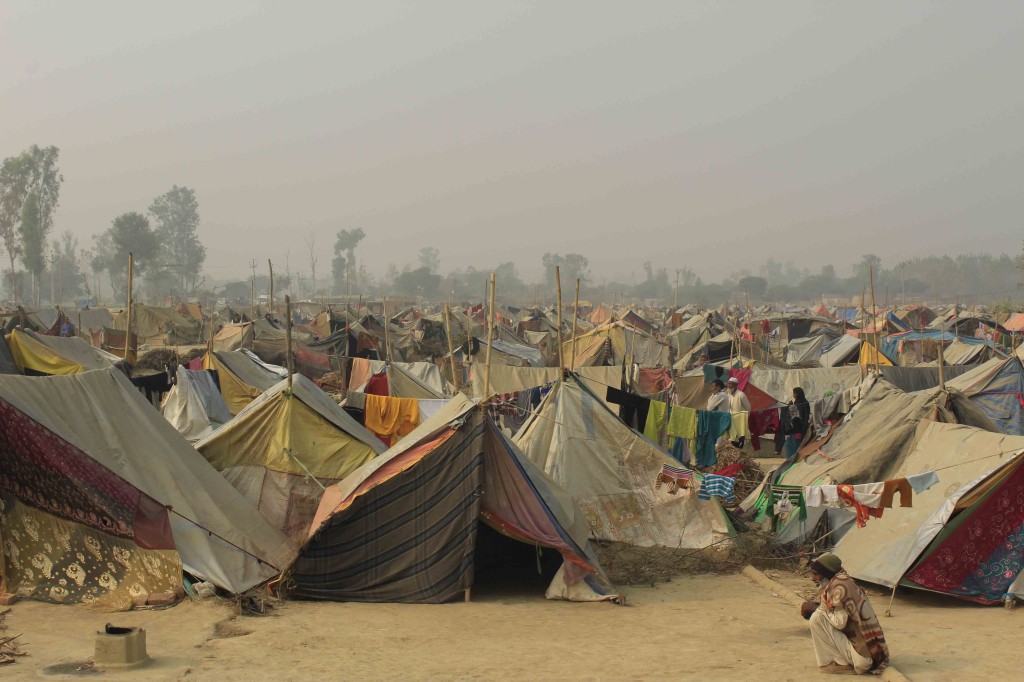"We Do Not Exist": The Victims of Muzaffarnagar

NEW DELHI: Fear is still written large on Firdaus’s face. A survivor from Muzaffarnagar she breaks down in tears, sobbing uncontrollably as she tries to narrrate what she and her family faced three years ago in a village in Western UP. Those around her tell her its okay, she does not need to go on, but she is determined to tell her story in the hope that the people around her in Delhi might be moved to do something for those who have not been able to emerge from the horror and the trauma of the terrible violence that went into the villages, and made neighbour kill neighbour.
Firdaus speaks of how, even when news of the violence in other villages came, her parents and grandparents were sure that nothing would happen to them. They drew solace from the fact that their family had lived for generations in the village, every person was known to them, and nothing would happen to them. Even as the younger members of the family, perhaps a little more connected to the world these days, kept coming back with news of attacks, of arson, of assault Firdaus recalls that the elders in her family kept shaking their head, “no no, we are safe, nothing will happen to us.”
By September 7 2013 it was clear to the elders, even though they did not want to admit it, that there was something indeed gravely wrong. And the storm of hate was proceeding towards their village. Sure that it would not enter, even so they sent all the young people of their family---inculding young Firdaus studying in Internmediate then---away from the village to relatives elsewhere. The children kept calling their parents to also leave. But to no avail. “Don’t worry nothing will happen.” they were assured.
The next night the mobs came, of villagers they recognised. Their mother was a target, and Firdaus weeps as she tells us that her mother was the victim of a “horrible attack from which she has still not recovered.” Their life is in ruins and although her was one of the few villages where the locals allowed the Muslims to return, and the administration pushed the effort, the fear is palpable. “They keep coming by and threatening us, you will not survive they tell us, and we are so scared, anything can happen any time,” she sobs.
But even the insecure home is better than the relief camp where young Rizwan has been living with his family for the past three years. His is a similar tragic story. The disbelief in the elders that violence could rock the home they had been living in for generations. “They just would not believe that anything could happen to them, and the pradhan also assured them that they were safe,” he says, voice cracking with barely concealed emotion. But in his village the pradhan himself turned and led the villagers to attack his family. Five of his family, including his grandfather were shot and hacked to death by persons they recognised. Here too the young people and the women had been sent out a couple of days before the violence. The elder men stayed back and paid the price.
Rizwan was studying and his examinations were due that December. Worried about losing what appeared to be the only means to future sustenance he tried to get help from the administration to be allowed to go back to give these exams. Finally an organisation helped, but when he went to write the exams he was thrown out as he was not wearing the uniform. He tried to explain that his house in the village had been gutted, he had no clothes, no money, but no one was listening. “Get out” was the only response he got.
Rizwan hates the relief camp where the people have been unable to pIck up any semblance of dignified life. It is in the jungles, with no amenities at all, citizens left to live or die on their own resources. The area is infested with snakes, mosquitoes, illness taking the form of epidemics, but there are no facilities. No one has gone back to the village, no one wants them back. They are the Internally displaced persons of India, with a permanent IDP status now staring them in the face.
Muzaffarnagar is still simmering, with few arrests or administrative action to restore the town and the adjoining villages to the formal communal amity. Villagers agree that they were victims of a communal conspiracy, but at the same time many feel that relations were badly fractured this time around, more so as the attack was from villagers on villagers. The result is that the Muslims have not been able to return to many of the impacted villages, out of fear for lives, and this has resulted in ghettoised settlements such as the one Rizwan lives in.
The Samajwadi party government in Uttar Pradesh has shown little interest in rehabilitation so that the western part of the populous state can revert to its earlier harmony when Jats and Muslims sat together, voted together, shared each others problems in the villages. As Rizwan said, “it was as if suddenly a hawa of hate swept through the area leaving as dead and injured”. Chief Minister Akhilesh Yadav announced a five lakh rupees relief for each person killed, and while this has still not been adequately distributed, the state government stopped there. The young CM has not bothered to visit the villages, to streamline the administration so they can return to their homes, till their land, resume their education and pick up the threads of life.
“It is as if we do not exist” , the forgotten victims of Muzaffarnagar.



